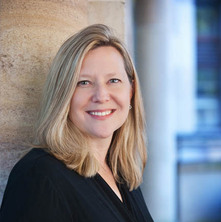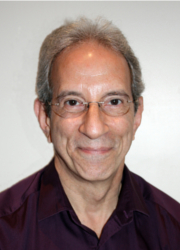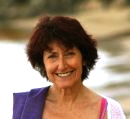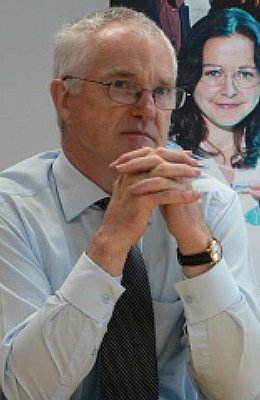Tag Archives: conference
#ASC14 wrap up
Thank you to Claire Harris for preparing the ASC2014 wrap up.
Well it was an amazing, full on four days for the Australian Science Communicators National Conference held in Brisbane at the beginning of February.
The Brisbane Convention and Exhibition Centre welcomed 372 delegates through the doors.
The Sunday Storytelling of Science event — featuring Prof Peter Adams, Prof Tim Flannery, Prof Jenny Graves, Lynne Malcolm, Dr Jesse Shore and hosted by Dr Andrew Stephenson — attracted 266 people in the audience.
The conference featured more than 65 sessions from plenary talks in the auditorium to workshops in the smaller concurrent rooms, speed networking and an Australian and New Zealand breakfast.
We had many lovely volunteers who helped the event run smoothly and this included four reporters/bloggers and people helping to livestream the event to 13 subscribers from around Australia and one in New York.
Some key links to re-live or explore what happened:
- Program at a glance (other details)
- Twitter Storifys (using hashtag #ASC14 and session hashtag)
- Podcasts of most sessions
- Flickr photos
- Media release about the Unsung Hero of Science Communication Award, awarded by Robyn Williams at the ASC2014 conference dinner
Media and other stories:
- Kylie Sturgess podcast including interviews with John Cook, Vanessa Hill, Kylie Walker
- Blog post by Shawn Callahan: The essential mindset for breakthrough innovation
- Wire
- CitizenJ article
- Econnect newsletter, collection of 7 conference articles by the Econnect team – newsletter archive online here
- Promoted by AusSMC
- Future of Science Journalism by Graham Readfern
- https://soundcloud.com/natashamitchell – via Natasha Mitchell
SURVEY
Post-conference surveys are always interesting and we know from past surveys and feedback, gathered over the years, that we can expect a range of opinions. This is understandable when you consider the diversity in job roles, experience, needs and interests. So far, we have received overwhelmingly positive feedback, with people telling us the conference was extremely valuable to them. A couple of people told us that it was their best conference experience ever (and they’ve been to more than a dozen in their careers). Wow.
The survey recently closed and so we will be busily combing through all the feedback and passing it on to those who will benefit in coming weeks, once all the data is in. However, we thought it might be timely to share just a few of the comments with you below.
If you feel that you could have offered a better session than what you saw, or an important aspect of the science communication landscape was missed, then the ASC would love to hear from you.
ASC2014 Program Committee
Any comments about the professional development sessions?
We encouraged a range of PD sessions with a whole stream devoted to them. Some hit the mark and some didn’t. The ASC would be very interested to learn more about what PD and training needs you feel you need to support you in your work, so please get in touch.
- “The editing sessions were excellent – I really enjoyed the little games and exercises and the presenter was very knowledgeable.”
- “Mind-blowing”
- “Hands-on, interactive, information-rich sessions were valuable and I got a lot out of them. It is easy to tell the well-prepared sessions from the ones with no content at all to those that were mere presentations. More activities that really make you think and learn are most effective for these PD sessions.”
What were the best aspects of the conference for you?
Networking of course came through as the best aspect of the conference. Some of the comments:
- “Feeling and being part of the Australian Science Communicator’s community – the opportunity to meet friends and acquaintances and make new ones, and to find out about science communication activities and research around Australia.”
- “Sense of community spirit. Presence of younger, less jaded folks.”
- “Networking and the opportunity to exchange ideas with peers.”
- “Learning about all aspects of science communication from all over the country. Networking opportunities.”
- “The Plenary sessions with Drew Berry and Lloyd were fantastic and inspiring.”
- “Hearing creative ideas put into practise and seeing the evaluations of how these have worked.”
- “Thanks again for one of, if not the, best and inspiring professional conferences I have attended.”
Speakers
Some speakers rocked attendees socks off and some need to develop further (including improving their presentation skills). Some people said that the sessions were great, but they did want (or were expecting) something more or different. All feedback is valuable so thanks again. Some comments:
- “Ian Lowe was fantastic!”
- “I will never look at WWE wrestling the same way again!”
- “The vast majority of the sessions I attended (if not all) had really good speakers and were really engaging and informative sessions.”
#ASC14 Podcasts – Claire Harris At The ASC National Conference
Claire Harris is the conference convenor for the Australian Science Communicators National conference for 2014.
Claire is a science communicator specialising in agriculture, environment and natural resource management science and technology. She’s worked as a scientist, project manager and communication specialist with government and research agencies in Australia and the United Kingdom.
After joining the Australian Science Communicators in 2005, Claire has been active in local branches and National Executive, and was National President for part of 2013.Claire joined CSIRO in 2009 to work in science communication for climate adaptation, environment and agriculture and was seconded to the Australian Government Department of Agriculture to assist with carbon farming communication in 2012. She’s just one of the many great people you can meet at the Australian Science Communicators conference in Brisbane, for 2014.
#ASC14 Past (current) presidents – Joan Leach
Thank you to Simon Chester for providing us with this president’s article.
With 2014 marking the 20th anniversary of the Australian Science Communicators (ASC), it’s a worthwhile time to talk to some of its past presidents, and find out some of their fondest memories, what drew them to science communication, what the big issues where back when they were steering the ship, and what issues remain now and into the future.
Joan Leach is the current President of ASC, and Convenes the Science Communication Program at the University of Queensland. She is also Associate Professor of Rhetoric and Deputy Head of the School of English, Media Studies, and Art History at UQ.
Joan believes that there are 2 sets of issues for Science Communication as a field of research and professional practice.
“First, there are the communication issues that arise because of the directions that science is taking. So, climate adaptation research, neuroscience, particle physics, and the wide diversity of research challenges science communicators to come up with strategies for dissemination, for engagement.
“But also, there are a range of issues that emerge about science communication itself. Should it be a field of advocacy or/and criticism about the role of science? When is communication most effective? How do we evaluate our effectiveness? To be a successful science communicator, you need to engage both these issues and that’s a big ask—basically, you need to be a reflexive practitioner.
Likewise, the issues facing science communication in the future will also fall into the two camps of research and communication.
“On the issues that research brings to the table, climate adaptation and our post- or trans-human future that I think are the biggies. And, they are related issues. With climate change a reality, alongside the real changes technology can bring to our brains and the rest of our bodies, there are some serious questions about what the future of humanity looks like. This also covers questions of our relation to each other and the planet. Framing these questions is a huge task. And these ‘big’ questions relate to how we see smaller research results and communicate those. And, if we want to upstream some of these questions and engage larger audiences before crises loom even larger, we have a huge task in front of us.
“On the communication front, I think questions of interdisciplinarity are increasingly important. By that, I mean synthesising insights from across the humanities, social sciences, and natural sciences. A lot of lipservice is given to interdisciplinarity, but to really achieve it is a huge challenge that includes synthesis, but also knowing when approaches from one discipline are compatible (or not) with those from another.”
Joan is optimistic about her time ahead as ASC president.
“I’d love to look back at this time and see the growth of the ASC and an increase in the organisations relevance to the big questions of science in Australia and the region.”
Science communication has always been an interest of Joan’s, and her broad training complements it well.
“I’ve always been drawn to science communication because of the mix of intellectual and practical challenge directed at things that matter. Also, this field means that I don’t have to ‘turn off’ bits of my brain; science communication is creative, critical, analytic, and practically challenging. In my education, I’ve formally studied biology, biophysics, philosophy, rhetoric, classics, and history and philosophy of science. And they all matter to science communication (if you buy me a drink, I can tell you how!).
#ASC14 Past presidents – Jesse Shore
Thank you to Simon Chester for providing us with this president’s article.
With 2014 marking the 20th anniversary of the Australian Science Communicators (ASC), it’s a worthwhile time to talk to some of its past presidents, and find out some of their fondest memories, what drew them to science communication, what the big issues where back when they were steering the ship, and what issues remain now and into the future.
Dr Jesse Shore is the Principal of Prismatic Sciences, and was ASC president from December 2009 to November 2012. He noted that science was becoming increasingly politicised during his tenure.
“In 2010 the ASC welcomed the increased emphasis by the federal government to engage all Australians with science. In stating their intentions they recognised that effective science communication would play a central role to achieve their goals.
“Science and technology became increasingly politicised as diverse commentators and various experts took opposing sides on issues such as climate change, stem cell research, nanotechnology, medical practices and other usual suspects. Many science communicators found that their usual approach often couldn’t compete with the emotional rhetoric of high profile, but misinformed, voices.
“Other influences during 2010-2012 were the rapidly evolving forms of data visualisation, apps and games and their increasing use as a tool to communicate science. Social media continued to grow in importance, and the NBN offered future hope – but not short term use.
“I’m pleased that [during my time as president] the ASC developed increasingly closer working ties with the Inspiring Australia Strategy of the federal government. The ASC partnered with various groups to carry out projects funded by Inspiring Australia.”
Dr Shore believes that technology will shape science communication in the future.
“Science communication will have to adopt and adapt to new technology such as 3D printing and people’s increasing interconnectedness though mobile media. We’ll need ways to reach audiences who are becoming increasing fragmented into smaller and more diverse niches (many of which overlap in some way).”
Jesse’s interest in Science communication grew out of a practical need early in his life as a scientist.
“I wanted to be a scientist ever since I was 12 years old and I succeeded, becoming a geologist. As a post-grad in California, I enjoyed my research but found that talking about its arcane details caused instant ennui in the listener.
“So, I gradually learned that whenever a pretty gal at a party asked me if I studied earthquakes I would lie and answer ‘yes,’ which would generally develop into an enthusiastic conversation. After many dates I am still improving how to lie about what I do.”
Jesse will be speaking at the BrisScience Storytelling of science event on Sunday 2 February. http://2014conf.asc.asn.au/the-storytelling-of-science/
“I’ll talk about my circuitous path to becoming a science communicator (theatre was involved), my approach to creating a story, and go through one or two science stories from my museum exhibition work. I think a tennis racquet may be involved.”
#ASC14 Past presidents – Alison Leigh
Thank you to Simon Chester for providing us with this president’s article.
With 2014 marking the 20th anniversary of the Australian Science Communicators (ASC), it’s a worthwhile time to talk to some of its past presidents, and find out some of their fondest memories, what drew them to science communication, what the big issues where back when they were steering the ship, and what issues remain now and into the future.
Alison Leigh, now Editorial Director at the World Congress of Science and Factual Producers, was the third president of ASC. Back during her presidency, the issues plaguing science communication were quite similar as those seen today.
“We worried that science and science journalism were not taken seriously by politicians or by news editors – plus ça change!
“A main focus of our organisation was to encourage high journalistic standards throughout the science communication profession. Scientists were reluctant communicators. We felt our mission was to encourage them to understand the importance of communicating their work, to talk in language that the lay person can understand, and to understand the pressures that journalists are under to meet their deadlines (and this was long before 24/7 news!).
“Science was not “sexy” – the ‘two cultures’ were alive and well. We used to discuss how we might try to deal with the stereotype images of science and scientists.”
Alison believes that many of the issues faced during her presidency will remain over the coming decade, too.
“Climate science is the most obvious example… but it’s not just that science and science journalists (not many left!) are not taken seriously: they are up against dark forces. It does not suit governments of the day – and their corporate supporters who also have controlling shares in what gets printed in the media – to take action on human induced climate change, so they prefer to deliberately obscure or challenge the message. Opinion and commentary passing as journalism also adds to the problem of misinformation.
However, there has been one positive change over the last TIME:
“GEEK IS CHIC! Here at least there is hope – nerdy science has become mainstream in popular culture. Physics professor Brian Cox is a super star in the UK. ‘Science’ finds its way into life style TV shows about the science of the food we eat (Jimmys Food Factory, Food Unwrapped), and the internet is full of all sorts of creative, and often very funny, podcasts about the kind of hard science that mainstream TV shies away from .”
Alison was a successful reporter for the BBC before migrating to Australia and – almost serendipitously – ending up in science communication.
“I emigrated to Sydney from the UK in 1988 – bicentennial year – fully expecting my on-screen career as a BBC TV and radio reporter /presenter to continue to flourish here. Wrong. I was ‘too old’ and ‘too English.’ Yikes! What to do? Try my hand at producing? My current affairs credentials landed me the job of Producer, Media Watch, with the task of getting series one to air.
“Next thing I know, after that baptism of fire, I’m being courted by the Executive Producer of Quantum – to be the Series Producer – i.e. day to day manager of that show. Saying yes to that job changed my life – and my focus.”
At the ASC conference, Alison will be presenting a selection of clips that represent some of the major trends internationally in science programming taken from mainstream, and internet, TV. Plus a look at the new on-line science game from ABC with Bernie Hobbs.
#ASC14 Past presidents – Toss Gasciogne
Thank you to Simon Chester for providing us with this president’s article.
With 2014 marking the 20th anniversary of the Australian Science Communicators (ASC), it’s a worthwhile time to talk to some of its past presidents, and find out some of their fondest memories, what drew them to science communication, what the big issues where back when they were steering the ship, and what issues remain now and into the future.
Toss Gascoigne, now a consultant in science communication, has been involved with ASC since its formation.
“I was involved in ASC from the beginning, helping convene the initial planning meeting at the National Press Club in Canberra, and working on the Executive for the first 10 years.
“When ASC started, it unleashed this huge wave of support, because so many people worked in professional isolation, and they wanted colleagues to talk to and share experiences. 375 people signed up as Founder Members, as a sign of support for ASC – and that was even before we wrote the constitution and had the first meeting!
“ASC started just before the first courses in science communication began at Australian universities, so … people came in from backgrounds in journalism or teaching, or science, or editing and writing or PR.
Toss began his science communication journey as a teacher.
“I was a high school teacher in Tasmania, in English and social sciences. Teaching was great (and so is Tasmania) but one can have too much. So I moved back to Canberra and took up an editing position (succeeding Will Stefan) with CSIRO’s Centre for Environmental Mechanics on Black Mountain.
“What I found was I loved working with scientists – their work is so interesting, their logic so compelling, and the problems they approach so relevant.
“I’m interested in how science communication has emerged in Australia (and other countries over the world) over the last 35 years, and what were the steps and what preceded it. So, when were the first university courses in science communication? When did research in these areas start? What is our history of writing papers and organising conferences? What organisations have we formed, and how does Australian experience with the rest of the world.”
Toss will be talking about the history of science communication in Australia and New Zealand at the SCANZ breakfast event (http://2014conf.asc.asn.au/schedule/special-events/scanz-asc-breakfast-event/), and during a panel (http://2014conf.asc.asn.au/schedule/the-emergence-of-modern-science-communication-in-australia-and-new-zealand-toss-gascoigne/) as part of the ASC conference.
#ASC14 Podcasts – Jesse Shore, Jenni Metcalfe And Joan Leach At The ASC National Conference
Her research centers on public engagement with science, medicine and technology and she has been active in the Australian government’s recent initiatives toward “Inspiring Australia”. She is currently researching the role of popular science in the globalisation of science since the 1960s, a project funded by the Australian Research Council. Jenni Metcalfe is the Director of Econnect Communication. She also lectures in science journalism at the University of Queensland. She has been a science communicator for more than 24 years, working as a journalist, practitioner and researcher in this area. She was President of the Australian Science Communicators (ASC) from 2005 to 2007. During that time, ASC hosted the World Conference of Science Journalists. Dr Jesse Shore, of Prismatic Sciences, is passionate about engaging the community with science and in looking for ways to weave together the arts and sciences. He has been developing science based exhibitions and events since 1984, and was President of the Australian Science Communicators from 2010-2012. His business, Prismatic Sciences, produced five travelling exhibitions for the Royal Australian Chemical Institute for the 2011 International Year of Chemistry and he manages the ongoing national tour.
Jesse previously worked at the Powerhouse Museum in Sydney as an exhibition project leader and Senior Curator of sciences. While at the museum he was one of the founders of the Ultimo Science Festival, a major National Science Week activity. He is currently collaborating with an artist to create artworks which have a science slant.
#ASC14 Podcast – Dr Rod Lamberts – Presenter at the ASC National Conference
Dr Rod Lamberts is the Deputy Director of the Australian National Centre for the Public Awareness of Science (CPAS) at the Australian National University, a founding partner of the Éngstrom Group, and in 2012 was elected National President of the Australian Science Communicators (retired injured, 2013).
He has more than 18 years experience as a professional facilitator and researcher, and is considered an expert of international standing in the field of science communication. More recently he has teamed up with another avid science communicator, Dr Will Grant – and together they produce SCOM BOMB, which will be appearing at the Australian Science Communicators conference in Brisbane.




